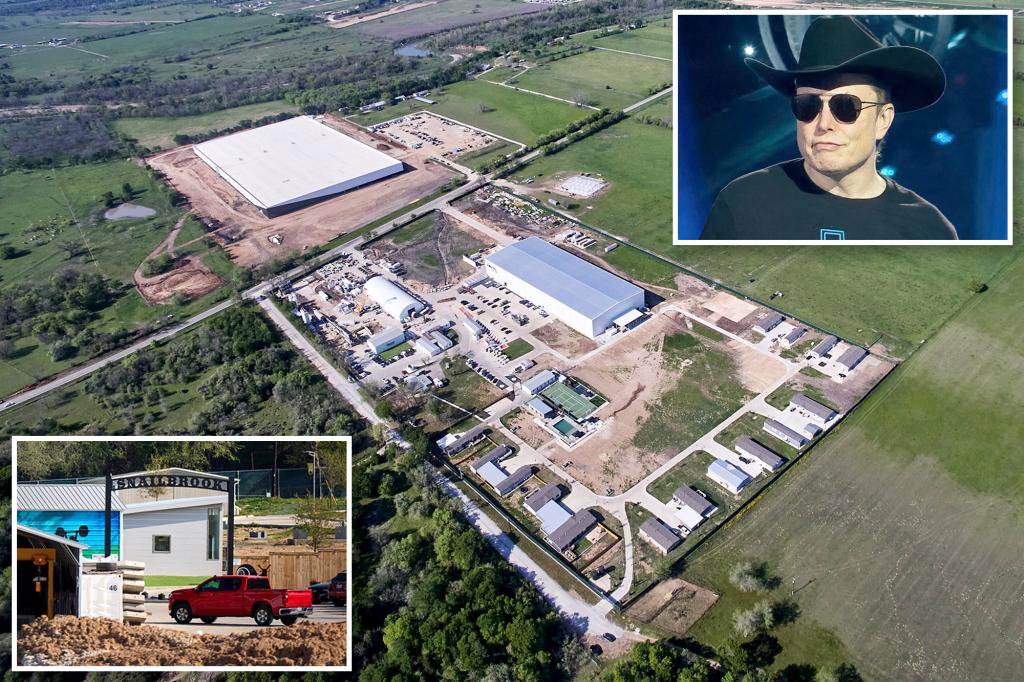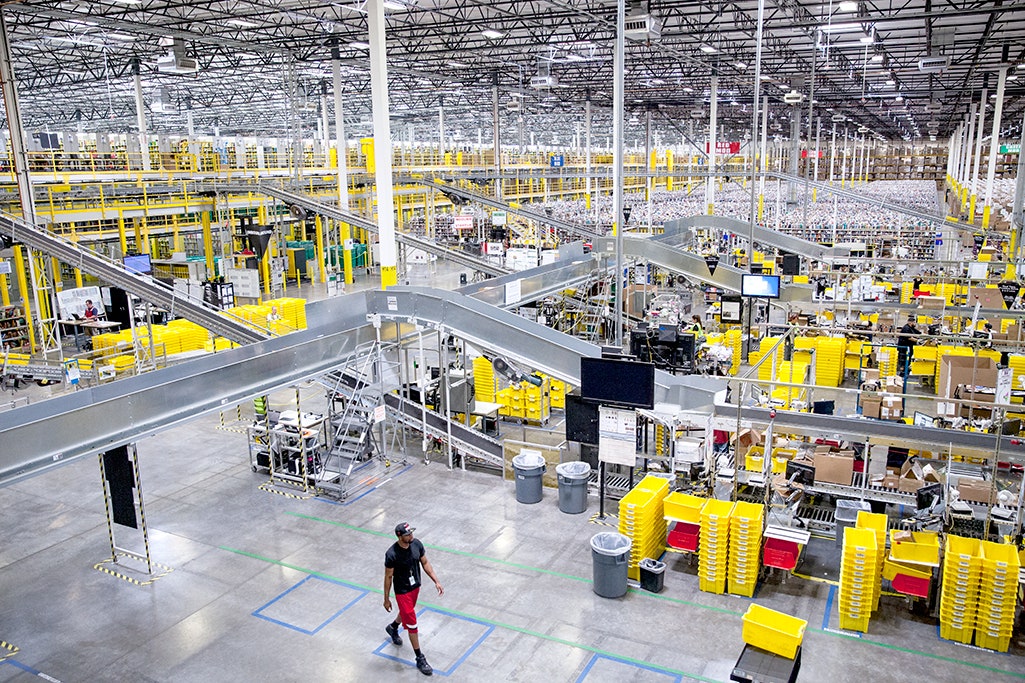
Capitalism’s Conclusion is an exclusive Occupy.com series analyzing capitalism in its end stage, and the conditions that led to its inevitable decline. (Click here to read Part I.)
On its surface, tech billionaire Elon Musk’s plan to build a town in Texas for workers employed at his companies sounds relatively harmless. According to Architectural Digest (citing the Wall Street Journal), Musk has as many as 6,000 acres near the town of Bastrop, Texas in which SpaceX and Boring Company employees could live and work. The town would be called “Snailbrook,” in reference to the Boring Company’s mascot:
Incorporating his own town would allow Musk to make some of his own regulations and dodge the slowdown effects of bureaucracy… Another benefit of the project would be providing employees with lower-than-market-rate housing. Snailbrook, although not yet an incorporated township, reportedly already has some modular homes, plus a public pool, gym, and outdoor sports area. An advertisement for Boring Co. employees last year touted two- to three-bedroom homes for rent starting at $800 a month, while the median rent in the area is about $2,200 a month, according to the Journal’s report.
It’s important to note that what Musk is planning is simply a company town. And while the tech industry of today is different than the railroad industry of the onset of the industrial revolution, billionaires like Elon Musk and Amazon’s Jeff Bezos are no different than the robber barons of the early 20th century, like the Vanderbilt family and the Rockefellers. And luckily, the solutions to stop today’s robber barons from halting the century of progress workers have made are the same as those of yesteryear.
Elon Musk reinvents the company town
Company towns are not new, and were a staple of the late 19th century and early 20th century “Gilded Age” defined by historic wealth inequality and working class revolt. The PBS documentary Slavery By Another Name describes how company towns – in which a single company owns all of the homes and businesses on an often remote plot of acreage – were particularly oppressive to workers:
In some situations, company towns developed out of a paternalistic effort to create a utopian worker’s village. Churches, schools, libraries, and other amenities were constructed in order to encourage healthy communities and productive workers. Saloons or other places or services believed to be negative influences were prohibited.
In other cases, the company’s motivations were less ideal. The remoteness and lack of transportation prevented workers from leaving for other jobs or to buy from other, independent merchants. In some cases, companies paid employees with a scrip that was only good at company stores. Without external competition, housing costs and groceries in company towns could become exorbitant, and the workers built up large debts that they were required to pay off before leaving. Company towns often housed laborers in fenced-in or guarded areas, with the excuse that they were “protecting” laborers from unscrupulous traveling salesmen.
Pullman, Chicago is perhaps the most notorious example of a company town. In the late 1800s, workers in the company town of Pullman (named for the railroad executive that built it) went on strike due to the strict conditions the Pullman Palace Car Company imposed on workers and residents. This included everything from banning workers from owning homes (all homes were rental only), banning town meetings, and even restricting what kinds of plays could be performed at the local theater and what books could be checked out from the library.
After the Panic of 1893, Pullman laid off hundreds of workers, and reduced wages while refusing to lower rents and utility costs for workers in the company town. These conditions led to the Pullman Strike between May and July of 1894. In the short term, this led to a massive strike of more than 100,000 railroad workers who refused to hitch Pullman cars, an injunction issued by anti-union judges, federal troops deployed to break up the strike, and the arrest of American Railway Union president Eugene V. Debs. However, in the long term, the Pullman Strike made Americans more sympathetic to organized labor causes, and led to unions and workers securing more victories in the years to come. Company towns eventually became a thing of the past once workers acquired automobiles in the 1920s and workers no longer had to reside near their workplaces.
It remains to be seen what will happen with Snailbrook – Elon Musk’s company town – though for now it seems that the town will eventually be built. Should conditions there become untenable, workers hoping to unionize will face an uphill battle, as Musk’s antipathy toward organized labor is well-documented. The tech CEO, who also owns Tesla, is currently in the middle of litigation following Tesla workers filing complaints with the National Labor Relations Board (NLRB). Workers argued to the NLRB that Musk’s threat to withhold stock compensation for Tesla employees who joined a union was an illegal intimidation tactic.
Amazon warehouses: The new Triangle Shirtwaist Factories?
This March 25 will mark the 122nd anniversary of the Triangle Shirtwaist Factory Fire, in which 146 Triangle Waist Company workers – most of whom were young Italian and Jewish immigrant girls – died due to unsafe working conditions. The exterior doors and stairwells of the Asch Building in Lower Manhattan were locked at the time of the fire, which was customary at that time in order to prevent workers from taking unauthorized breaks and/or stealing company property. Because the workers had no way to escape the fire, many jumped to their deaths from factory windows between the 8th and 10th floors.
Despite working six days a week for roughly 52 hours, the workers were paid between $7 and $12 per week, according to an article in the summer 2011 edition of New York Archives. In 2023 dollars, this would amount to roughly $213 and $366 per week, or $4 to $7 per hour. Despite the catastrophic death toll, the factory owners were acquitted of first and second-degree manslaughter charges. The only form of accountability for the two owners came in the form of a wrongful death judgment to the tune of $75 per victim ($2,289 in inflation-adjusted dollars, for a total of $334,194). They were more than made whole for their slight financial loss, as their insurance company paid them roughly $400 per victim (approx. $12,211 in today’s dollars, or more than $1.7 million in total). Two years after the fire, one of the owners was found guilty of keeping the doors locked during working hours, and was fined the maximum penalty of just $20 (roughly $610 today).
While Jeff Bezos has yet to have a Triangle Shirtwaist Fire-type incident at any Amazon warehouses, workers at his warehouses have nonetheless experienced an inordinate amount of deaths in recent years:
-
In December of 2022, workers at an Amazon warehouse in Colorado allege Amazon made them work in close proximity to the corpse of a worker who died on the job after collapsing on the floor. One employee anonymously told The Guardian that they didn’t hear about the worker’s death until another worker told them about it in the break room.
-
Between July 13 and August 4 of 2022, four Amazon workers died – three of those deaths were in New Jersey, and the fourth was in Pennsylvania. One of the workers died from cardiac arrest on Amazon’s notoriously grueling Prime Day, another died in a forklift crash, and another from a head injury suffered after falling from a ladder. The fourth death is still under investigation.
-
In 2021, two workers at Amazon’s warehouse in Bessemer, Alabama (which narrowly failed to unionize after Amazon was confirmed to have illegally meddled in the election) died within hours of each other. According to labor journalist Kim Kelly, one of those workers was denied sick leave before having a fatal stroke. Four other workers died at the Bessemer facility that year, and workers accused Amazon of covering them up.
-
Also in 2021, six workers at an Amazon warehouse in Illinois died when the building collapsed on them after a tornado hit the area. One of the workers who died – a father of four – texted his girlfriend that the company wouldn’t let them leave in advance of the tornado.
The total number of deaths at Amazon facilities remains unknown. However, a group of lawmakers including Reps. Cori Bush (D-Missouri), Alexandria Ocasio-Cortez (D-New York), and Senators Sherrod Brown (D-Ohio) and Elizabeth Warren (D-Massachusetts) are demanding that Amazon provide a ten-year list of all Amazon workers who have died while on the job, accompanied with explanations of how each worker died.
“Amazon has proven time and again that it views workers as disposable means to achieving greater profits. Amazon earned $21 billion in 2020 alone, and its workers have made founder Jeff Bezos the wealthiest person in the world – with a staggering net worth of $184 billion,” the letter from Congress read. “In sharp contrast, many of Amazon’s employees are forced to subsidize their low wages with government assistance such as the Supplemental Nutrition Assistance Program (SNAP) and Medicaid.”
Reining in the Robber Barons with Unions
Just as the case was in the late 19th and early 20th centuries, the best panacea by far to corporate greed run amok is for workers to organize and form unions. Unions are slowly on the rise, possibly due to the wave of worker militancy that became more visible in the post-lockdown economy. In 2022, for example, there were roughly 200,000 more wage and salary workers who belonged to unions compared to 2021, according to the Bureau of Labor Statistics.
The benefits to unionization are numerous. According to More Perfect Union, workers with union contracts earn 10.2% more on average than their non-union counterparts with similar education and experience in similar industries. Additionally, 93% of unionized workers have paid sick leave, compared to just 75% of non-union workers. And employers typically pay 77% more toward unionized employee health plans than non-union employers. Unionized workers usually have better job security, as union contracts may require companies provide “just cause” for firing a worker, as opposed to non-union, “at-will” workplaces in which bosses can fire workers for any reason or for no reason, at any time.
Organizing a union can be as simple as talking to coworkers about unionizing in order to secure better pay and benefits, reaching out to a union organizer to develop an organizing plan for your coworkers, collecting union cards from coworkers in order to trigger an NLRB election, and then winning recognition from an employer in order to begin the collective bargaining process. The United Food and Commercial Workers union has compiled a full guide on how to start a union, which you can view here.
The fact that so many billionaire capitalists like Elon Musk and Jeff Bezos loathe unionization and pull out all the stops to prevent employees from unionizing, is a testament to how powerful they still are.
(Stay tuned for Part III of this series, which will delve into an economic and labor system that could help ease the transition from capitalism to a more equitable economic system.)
Carl Gibson is an independent journalist and columnist whose work has been published in CNN, The Guardian, The Washington Post, The Houston Chronicle, Barron’s, Business Insider, The Independent, and NPR, among others. Follow him on Mastodon @crgibs@mastodon.social.


















